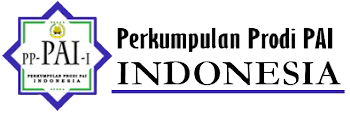Pemanfaatan Sistem Zakat Online sebagai Pelatihan dan Pembiasaan bagi Anak
DOI:
https://doi.org/10.19109/pairf.v7i1.25622Keywords:
Online Zakat, Children, Training HabituationAbstract
The technological development that is very much felt is the existence of e-commerce. Digital transformation such as e-commerce can be applied in zakat management. The purpose of this study is to analyze the use of the online zakat system as training and habituation of zakat for children. Researchers will discuss how the online zakat system, how parents and teachers utilize the online zakat system as a medium for training and habituation of zakat for children. The research method used in this study is a qualitative method with a library research approach that focuses on collecting and analyzing data from various written sources such as books, journals, articles and other relevant references. Data will be analyzed using thematic analysis to identify emerging patterns and themes. The results of the study show that habituation of zakat for children through digital technology, such as online zakat applications, is an innovative step that can answer the challenges of the times. Strategies that can be carried out in digitalizing zakat or online zakat include developing educational applications, gamification, zakat payment simulations, collaboration with schools, and the active role of parents. The benefits of online zakat training and habituation for children include teaching empathy and social awareness, increasing Islamic financial literacy, forming Islamic character in the Digital Era. This study provides a significant contribution in clarifying the role of technology in zakat education and character development of children.
References
Al Hasan Ali Ibn Muhammad Al Mawardi. (1994) Alhawi Alkabir. Bairut:Dar Fikr
APJII. (2023). Laporan Penetrasi dan Perilaku Pengguna Internet di Indonesia 2022–2023. Jakarta: APJII
Baznas. (2023). Laporan Statistik Zakat Nasional 2023. Jakarta: Baznas.
Chapra, M. U.(2000) The Future of Economics: An Islamic Perspective. Leicester: Islamic Foundation
Dompet Duafa. (2023). “Gandeng Dompet Dhuafa, KB-TK Islam Tugasku Edukasi Siswa Tentang Kewajiban Berzakat Sekaligus Ajarkan Kepedulian”, from dompetdhuafa.org: https://www.dompetdhuafa.org/
Hassan, M. K., & Abdullah, M. (2018) Islamic Finance: Principles and Practice. New York: Springer
Indrawan, Rully & R, Poppy Yaniawati. (2014). Metode Penelitian. Bandung: Unpas
Kapp, K. M. (2012) The Gamification of Learning and Instruction. San Francisco: Wiley.
M. Syabiq, Mahyuddin Syaff (pnj). (1978) Fikih Sunan 5. Bandung: Almaarif
Rahim, S., & Wahab, S. (2020) Digital Learning in Islamic Education: An Innovative Approach. International Journal of Islamic Education, 2020.
Rahman, F. (2017) . Islam and Modernity: Transformation of an Intellectual Tradition. Chicago: University of Chicago Press
R. Poppy Yaniawati. (2020) “Penelitian Studi Kepustakaan (Library Research)”. disajikan pada acara (Penyamaan Persepsi Penelitian Studi Kepustakaan” di Lingkungan Dosen FKIP Unpas)
Sugiyono. (2016). Memahami Penelitian Kualitatif. Bandung: Alfabeta












.png)


1.png)



